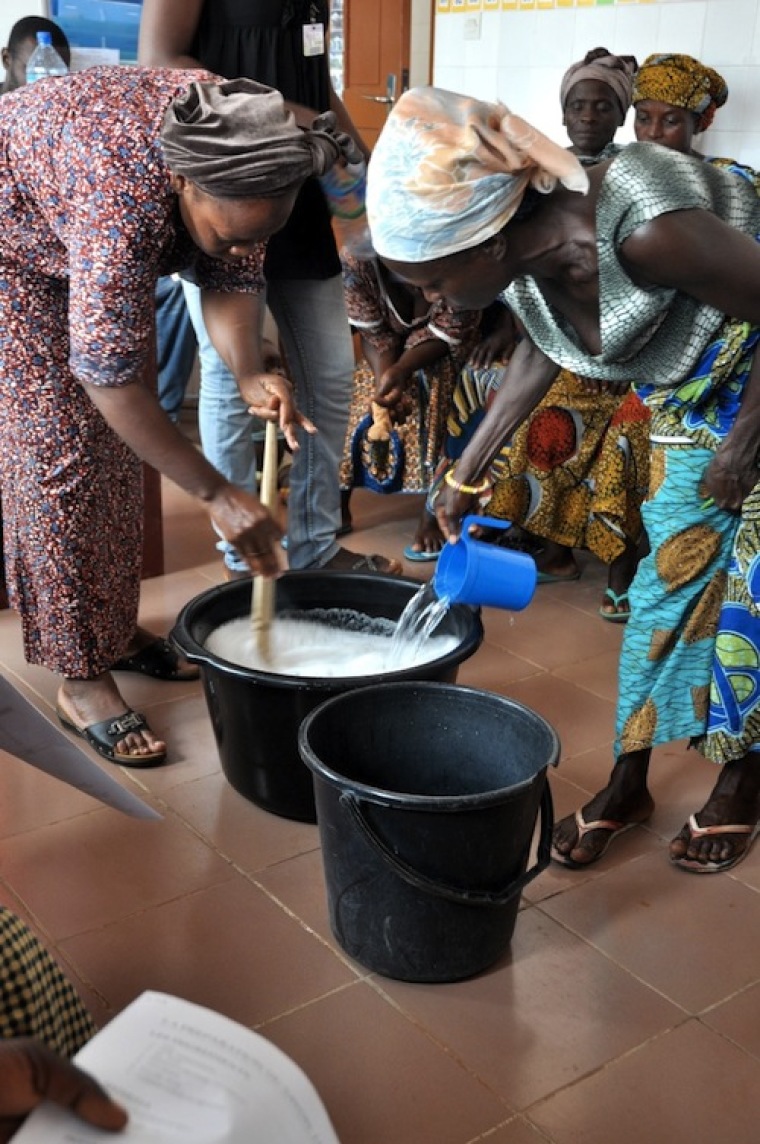
Some such women were preparing to return to their homes as they came, with no money, no hope, and constant urine leakage. "They were so full of hope, and they used all their money getting to the hospital ship during this year's field assignment in the West African nation of Togo," says Education Coordinator Ellen De Pagter.
She conferred with Adjete Wilson, a day volunteer, whose mother, Antoinette, teaches soap making. Antoinette agreed to teach the departing women how to make soap. Each received a litre and a half of the clear liquid to take home, plus enough money to buy the equipment and products to make soap in order to start a small business. This would give them the opportunity to start a small business and have an ample supply of soap for themselves.
She also offered to teach any of the other women waiting for their surgery dates. Almost all of them were very interested in learning how to make soap and have a business of their own.
Antoinette shared her recipe for soap making in detail, giving opportunities to stir the batch with her wooden paddle. The women were also given a printed list of instructions and ingredients.
Adjete then led a basic course in business finance, stressing the importance of using the money to buy the equipment that would produce an income for them. From then on, the soap will bring profits. Each woman also received a small wooden box with instructions to put a portion of the income into the box each time a bottle of soap is sold. The box must be broken to remove the money. "Save up the money to buy something important," she told them.
One of the women said, "I wondered why God ever brought us here. I thought God had forgotten us." But after seeing the program, a few of the women were anxious to pair up to make the soap together. Another woman went out and bought everything she would
need to make the soap at home.
"This is the first step," she said. "I can start now."
Ellen was satisfied to see the women had made such significant progress. "They have new hope again," she said.
Mercy Ships is a global charity that has operated hospital ships in developing nations since 1978 providing free health care and community development services to the forgotten poor. Following the example of Jesus, Mercy Ships brings hope and healing to the poor. Working in partnership with local people, Mercy Ships empowers communities to help themselves. The result is a way out of poverty.
The emphasis is on the needs of the world's poorest nations in West Africa, where the world's largest charity hospital ship Africa Mercy, with a crew of more than 450 volunteer, provides the platform for services extending up to ten months at a time. Mercy Ships works on land-based projects in Sierra Leone in partnership with other organisations, while teams also work in several nations of Central America and the Caribbean. Mercy Ships Australia, one of 15 international support offices is based on the Queensland Sunshine Coast.
On the web: www.mercyships.org.au
